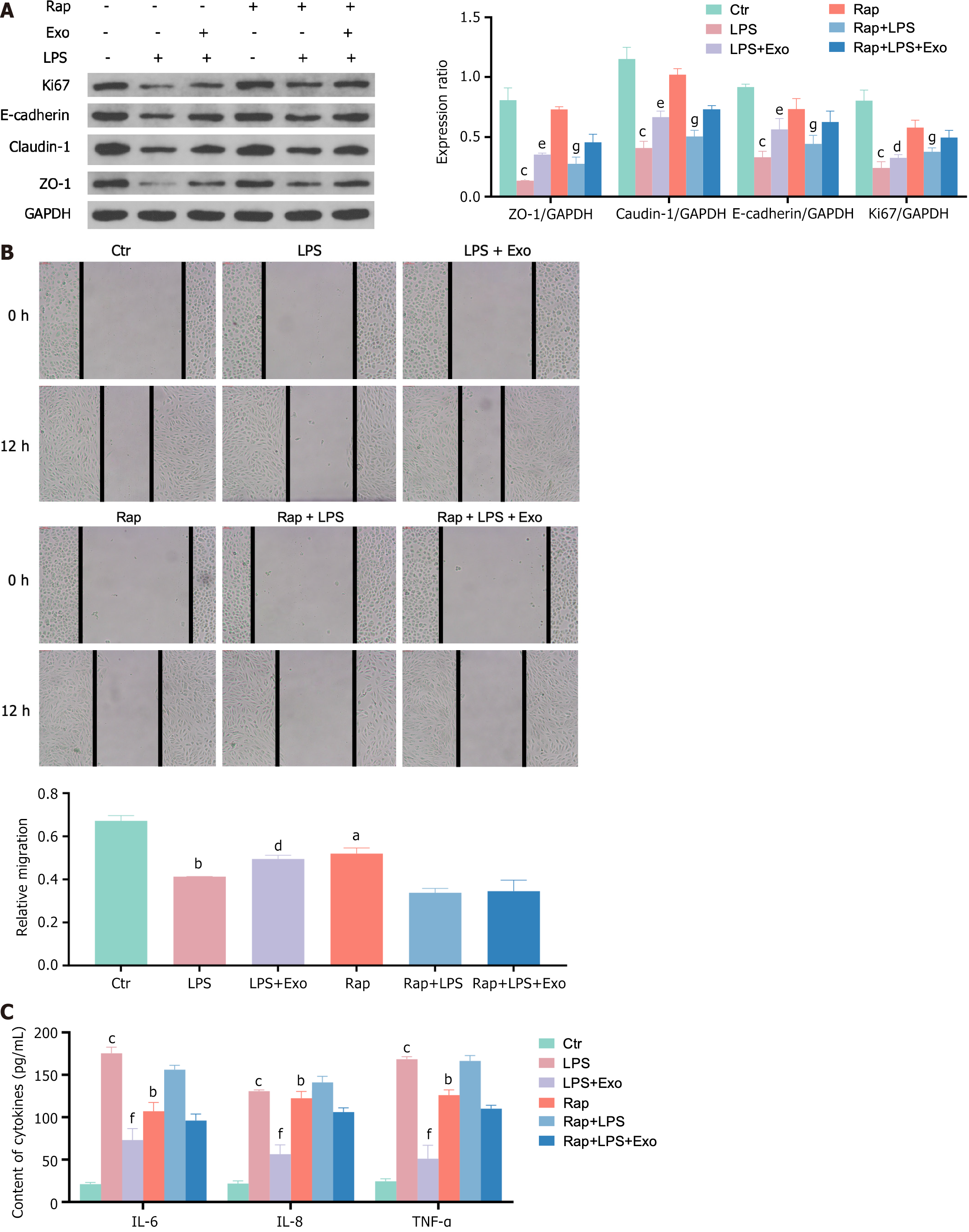Copyright
©The Author(s) 2024.
World J Stem Cells. Jun 26, 2024; 16(6): 728-738
Published online Jun 26, 2024. doi: 10.4252/wjsc.v16.i6.728
Published online Jun 26, 2024. doi: 10.4252/wjsc.v16.i6.728
Figure 3 Human umbilical cord mesenchymal stem cell exosomes attenuate inflammation and injury induced by lipopolysaccharide and enhance the migration ability of intestinal epithelial cells by regulating autophagy.
A: The expression of tight junction proteins (ZO-1, claudin-1 and E-cadherin) and cell proliferation proteins in each cell group was determined by western blotting; B: Migration ability of IEC-18 was detected by wound healing assay; C: Inflammatory factor levels in cell supernatants were detected by enzyme-linked immunosorbent assay. Data was expressed as mean ± SEM of three or six independent experiments. aP < 0.05 vs control group, bP < 0.01 vs control group, cP < 0.001 vs control group; dP < 0.05 vs lipopolysaccharide, eP < 0.01 vs lipopolysaccharide, fP < 0.001 vs lipopolysaccharide; gP < 0.01 vs Rap. LPS: Lipopolysaccharide; Ctr: Control; IL: Interleukin; TNF: Tumor necrosis factor.
- Citation: Zhu L, He L, Duan W, Yang B, Li N. Umbilical cord mesenchymal stem cell exosomes alleviate necrotizing enterocolitis in neonatal mice by regulating intestinal epithelial cells autophagy. World J Stem Cells 2024; 16(6): 728-738
- URL: https://www.wjgnet.com/1948-0210/full/v16/i6/728.htm
- DOI: https://dx.doi.org/10.4252/wjsc.v16.i6.728









